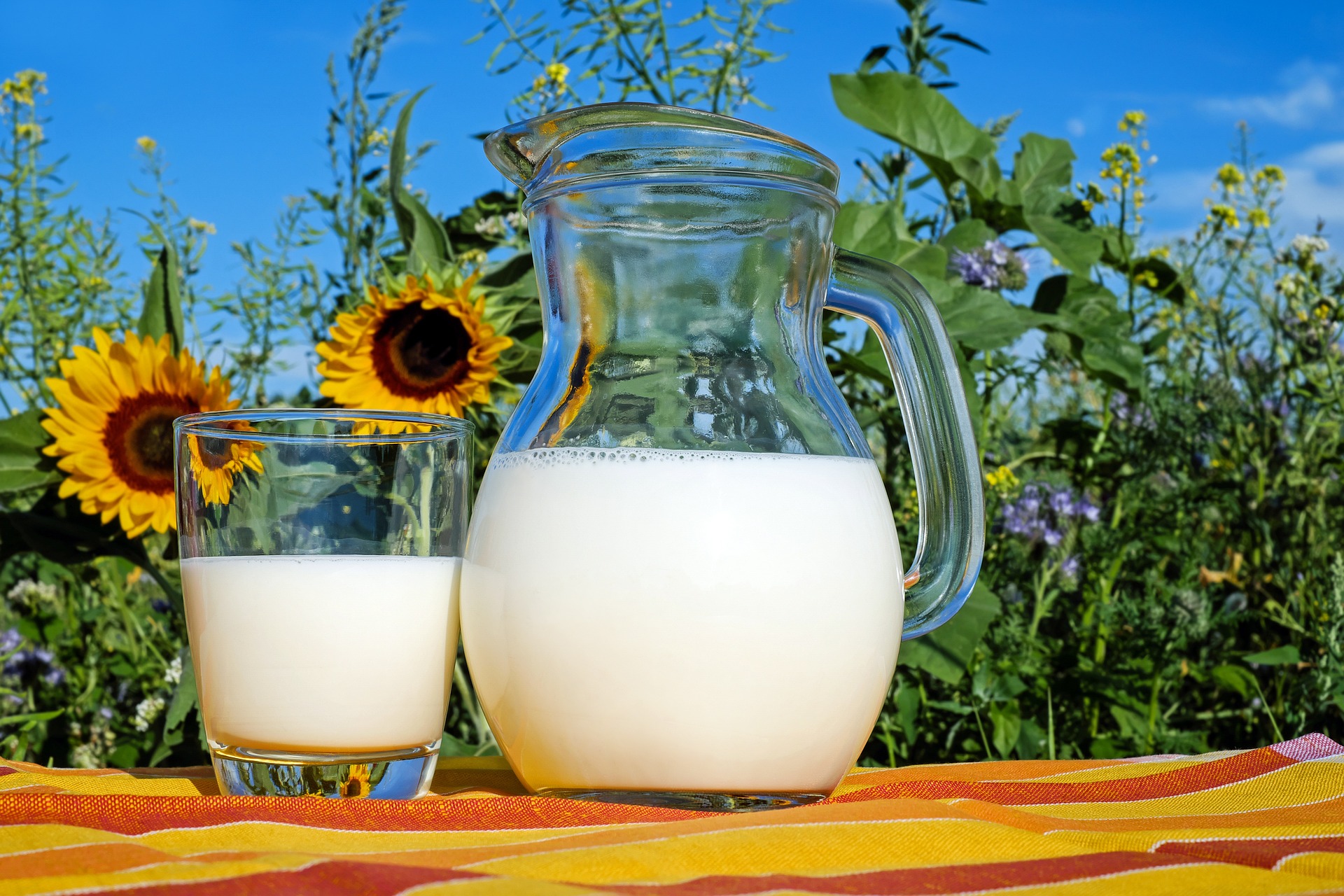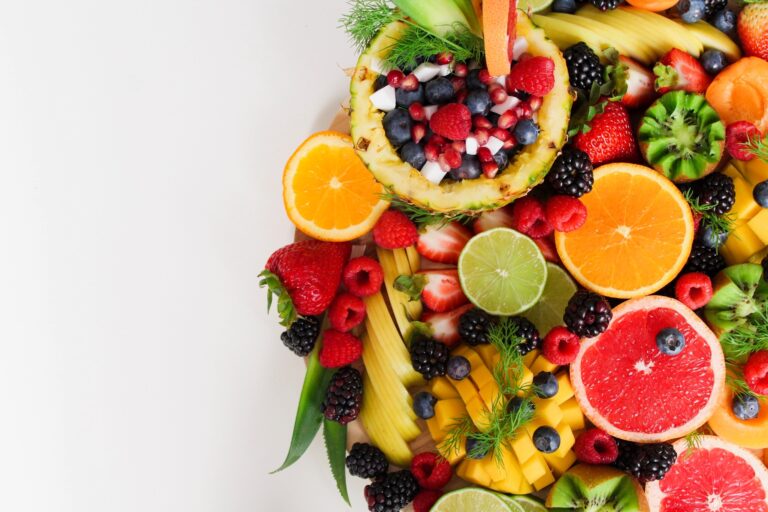
Eggs are a highly nutritious and versatile food that is a popular source of protein for people around the world. One large egg contains around 6 grams of protein, making it an excellent choice for those looking to increase their protein intake. In addition to being a rich source of protein, eggs are also packed with other important nutrients, including vitamins D and B12, choline, and antioxidants like lutein and zeaxanthin.
Protein is an essential macronutrient that is vital for building and repairing muscle tissue, as well as promoting healthy growth and development. Incorporating high-protein foods into your diet can help you build muscle, increase strength, and boost your energy levels.
Eggs
Eggs are a versatile and affordable source of high-quality protein.
Eggs are a highly nutritious and versatile food that is a popular source of protein for people around the world. One large egg contains around 6 grams of protein, making it an excellent choice for those looking to increase their protein intake. In addition to being a rich source of protein, eggs are also packed with other important nutrients, including vitamins D and B12, choline, and antioxidants like lutein and zeaxanthin.
One of the key benefits of eggs as a protein source is their bioavailability. This refers to the extent to which the protein in food can be absorbed and utilized by the body. Eggs are considered to be a highly bioavailable protein source, with studies showing that up to 94% of the protein in eggs is absorbed by the body. This makes eggs an ideal choice for athletes and anyone looking to build or maintain muscle mass.
Another benefit of eggs is their versatility in cooking. They can be prepared in a variety of ways, including boiled, poached, fried, and baked. They can also be incorporated into a wide range of dishes, from breakfast omelettes to lunchtime salads and dinner casseroles. This makes eggs a convenient and easy-to-use protein source that can be enjoyed at any time of day.
It’s worth noting that the nutrient content of eggs can vary depending on how they are produced. For example, eggs from chickens that are raised on pasture and allowed to forage for their food have been shown to contain higher levels of vitamins and antioxidants than eggs from chickens that are raised in confinement. Additionally, some people may be allergic to eggs or have dietary restrictions that prevent them from consuming them.
Overall, eggs are a highly nutritious and versatile food that is an excellent source of protein. By incorporating eggs into your diet, you can increase your protein intake and enjoy a wide range of health benefits.
Greek yogurt
Greek yogurt is a popular food that is known for its high protein content. This type of yogurt is made by straining regular yogurt to remove the liquid whey and lactose, resulting in a thicker and creamier texture. As a result of this process, Greek yogurt is a concentrated source of protein, with around 17 grams of protein in a 6-ounce serving.
In addition to being a rich source of protein, Greek yogurt is also a good source of other important nutrients like calcium, potassium, and vitamin B12. It is also lower in sugar and carbohydrates compared to regular yogurt, making it a good option for people who are watching their sugar intake or following a low-carb diet.
Greek yogurt is a versatile food that can be enjoyed on its own or incorporated into a wide range of dishes. It can be used as a creamy base for dips and sauces, added to smoothies and shakes for an extra protein boost, or used in place of sour cream or mayonnaise in recipes.
It’s worth noting that not all Greek yogurts are created equal. Some brands may contain added sugars or artificial ingredients, so it’s important to read the label and choose a high-quality, natural product. Additionally, some people may be lactose intolerant or have a dairy allergy, in which case Greek yogurt may not be a suitable protein source for them.
Overall, Greek yogurt is a nutritious and convenient food that is an excellent source of protein. By incorporating it into your diet, you can increase your protein intake and enjoy a wide range of health benefits.
Chicken breast
Chicken breast is a popular and widely consumed food that is known for its high protein content. It is a lean cut of meat that is low in fat and calories, making it a great choice for people who are looking to increase their protein intake without consuming too many extra calories.
A 3-ounce serving of cooked chicken breast contains around 25 grams of protein, which is almost half of the recommended daily protein intake for an average adult. Chicken breast is also a good source of other important nutrients like vitamin B6 and niacin, which are important for energy production and brain function.
Chicken breast is a versatile food that can be prepared in a variety of ways, including grilling, baking, and sautéing. It can be seasoned with a wide range of spices and herbs to add flavor, or marinated in a sauce to enhance its taste and tenderness.
When choosing chicken breast as a protein source, it’s important to choose high-quality, organic or free-range chicken if possible. These types of chicken are raised without the use of antibiotics or hormones and are fed a natural diet, which can result in a more nutritious and flavorful meat.
Overall, chicken breast is a nutritious and convenient food that is an excellent source of protein. By incorporating it into your diet, you can increase your protein intake and enjoy a wide range of health benefits.
Tuna
Tuna is a popular food that is known for its high protein content and health benefits. It is a type of fish that is rich in essential nutrients like omega-3 fatty acids, selenium, and vitamin D, making it a highly nutritious protein source.
A 3-ounce serving of canned tuna contains around 20 grams of protein, which is almost half of the recommended daily protein intake for an average adult. Tuna is also low in calories and fat, making it a good choice for people who are looking to increase their protein intake without consuming too many extra calories.
Tuna can be enjoyed in a variety of ways, including in salads, sandwiches, or as a topping on crackers. It can also be cooked and served as a main dish, or used as an ingredient in a variety of recipes like casseroles and pasta dishes.
When choosing tuna as a protein source, it’s important to choose high-quality, sustainably sourced tuna if possible. This can help to ensure that the tuna has been caught in a responsible and environmentally friendly manner, and can also help to ensure that the tuna is free from harmful contaminants like mercury.
Overall, tuna is a highly nutritious and convenient food that is an excellent source of protein. By incorporating it into your diet, you can increase your protein intake and enjoy a wide range of health benefits.
Lentils
Lentils are a highly nutritious and versatile food that is known for its high protein content. They are a type of legume that is packed with essential nutrients like fiber, iron, and folate, making them a highly nutritious protein source.
A 1-cup serving of cooked lentils contains around 18 grams of protein, which is almost one-third of the recommended daily protein intake for an average adult. Lentils are also low in fat and calories, making them a good choice for people who are looking to increase their protein intake without consuming too many extra calories.
Lentils can be enjoyed in a variety of ways, including in soups, stews, and salads. They can also be used as a meat substitute in vegetarian dishes like lentil burgers and lentil loaf.
When choosing lentils as a protein source, it’s important to choose high-quality, organic lentils if possible. This can help to ensure that the lentils are free from harmful pesticides and chemicals, and can also help to ensure that they have a higher nutrient content.
Overall, lentils are a highly nutritious and convenient food that is an excellent source of protein. By incorporating them into your diet, you can increase your protein intake and enjoy a wide range of health benefits.
Quinoa
Quinoa is a highly nutritious and versatile food that is known for its high protein content. It is a type of seed that is native to South America, and is rich in essential nutrients like fiber, iron, and magnesium, making it a highly nutritious protein source.
A 1-cup serving of cooked quinoa contains around 8 grams of protein, which is a significant amount compared to other grains. Quinoa is also low in fat and calories, making it a great choice for people who are looking to increase their protein intake without consuming too many extra calories.
Quinoa can be enjoyed in a variety of ways, including as a side dish, in salads, or as a base for stir-fries and grain bowls. It has a nutty and slightly sweet flavor that pairs well with a variety of seasonings and ingredients.
When choosing quinoa as a protein source, it’s important to choose high-quality, organic quinoa if possible. This can help to ensure that the quinoa is free from harmful pesticides and chemicals, and can also help to ensure that it has a higher nutrient content.
Overall, quinoa is a highly nutritious and convenient food that is an excellent source of protein. By incorporating it into your diet, you can increase your protein intake and enjoy a wide range of health benefits.
Milk
Milk is a good source of protein, containing two main types of protein: casein and whey. Casein makes up about 80% of the protein in milk, while whey makes up the remaining 20%. Both casein and whey are considered high-quality proteins, meaning they contain all the essential amino acids that the body needs to function properly.
Protein is an essential nutrient that plays a vital role in the growth and repair of tissues in the body. It is especially important for building and maintaining muscle mass. In fact, milk protein is often used as a supplement by athletes and bodybuilders to help them build and repair muscle.
In addition to its protein content, milk is also a good source of other important nutrients such as calcium, vitamin D, and vitamin B12. However, it is worth noting that milk is also high in saturated fat and cholesterol, so it is important to consume it in moderation and choose low-fat or fat-free options if possible.
Almonds
Almonds are a highly nutritious and delicious food that is known for its high protein content. They are a type of nut that is rich in essential nutrients like fiber, healthy fats, and vitamin E, making them a highly nutritious protein source.
A 1-ounce serving of almonds contains around 6 grams of protein, which is a significant amount compared to other nuts. Almonds are also low in carbohydrates and rich in healthy fats, making them a great choice for people who are looking to increase their protein intake without consuming too many extra calories.
Almonds can be enjoyed in a variety of ways, including as a snack, in smoothies, or as an ingredient in recipes like almond butter and almond flour. They have a mild and slightly sweet flavor that pairs well with a variety of seasonings and ingredients.
When choosing almonds as a protein source, it’s important to choose high-quality, raw or roasted almonds if possible. This can help to ensure that the almonds are free from harmful additives and chemicals, and can also help to ensure that they have a higher nutrient content.
Overall, almonds are a highly nutritious and convenient food that is an excellent source of protein. By incorporating them into your diet, you can increase your protein intake and enjoy a wide range of health benefits.
salmon
salmon is an excellent source of protein. It is also rich in omega-3 fatty acids, which are important for heart health and brain function. A 3-ounce serving of cooked salmon contains about 22 grams of protein, making it a great choice for those looking to increase their protein intake.
Salmon is also a good source of other important nutrients, such as vitamin D, vitamin B12, and selenium. However, it is important to note that not all salmon is created equal in terms of nutrition. Wild-caught salmon tends to be more nutrient-dense than farmed salmon, so if possible, choose wild-caught salmon for the highest nutritional value.
Overall, including salmon in your diet can be a great way to boost your protein intake while also reaping the health benefits of omega-3 fatty acids and other important nutrients.
In conclusion, incorporating high protein foods into your diet is essential for building muscle, increasing strength, and boosting your energy levels. By including these 10 high protein foods in your diet, you can ensure that you are getting the nutrients you need to achieve your fitness goals.




